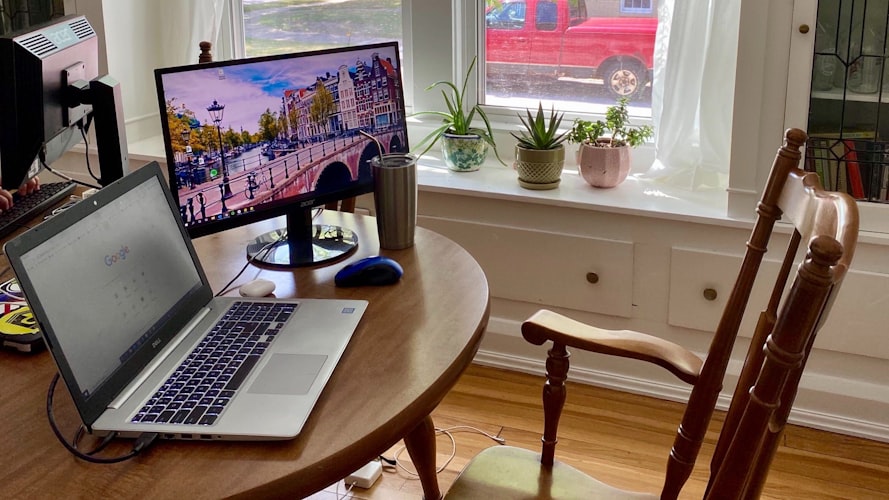What is Remote Work?
We are in the midst of a flexible workplace revolution. Remote work is changing how the global workspace operates. In a trend that is showing no signs of slowing down, More employees than ever before are working remotely.
Based on research done by GetApp over the last decade, the number of people working remotely at least once a week has gone up by 400%. IWG did another study that revealed about 70% of the entire global workforce telecommutes at least once a week already. and it’s predicted that the workforce will either be freelance, outsourced or remote workers who spend much of their time working from home.
In this post, we’ll define remote work, explain how people can work remotely and why do they work remotely? Let’s dive in.Ready to Go Remote? Check petitcode available remote jobs Now
What is Remote Work?
Remote work, also known as telecommuting, telework, or working from home, is any work environment where employees do not need to work in the same office so it's location independent. Simply put, remote work is work done by team members spread out across different locations or in different time zones working on the same projects effectively.
How do People Work Remotely?
To know how people can work remotely you need to know the types of remote teams people can be part of as remote workers. The company that employees work for or the projects freelancers work on will determine what kind of team they are working in. The setups can vary, and not everyone on a team may be in the same position as others. This also is true location wise. Some people may be in a certain country where the company is, and others can be working from abroad. Let’s dive into the most common types of remote teams.
Types of Remote Teams:
1. Fully Remote Teams
A fully remote team is when all team members will be working together remotely. There’s no office and no need for employees to meet their teammates in person. A fully remote team is most likely going to be part of a fully remote company, making it one of the most compelling structures to work in. This kind of arrangement will most likely have people from many different countries working together. They may even be from different continents, so it takes a lot of effort to make it work due to the massive challenges such as big differences in time zones. There are so many fully remote companies these days that allow all their staff to remote work 100 percent of the time like Buffer, Doist, and Invision which are successful and considered leaders in their industries, keep in mind you'll find a lot of remote enthusiasts and evangelicals here.
2. Distributed Team Hubs
When a company decides to set up small offices in different cities from its headquarters, its workforce becomes distributed. In other words, part of the team is in one office and the other part is co-located in other offices in different locations. for example, you may have a German company that is trying to expand into Europe. In this case, the development team is in Berlin whilst the marketing team is in Paris. The two teams work remotely from two different locations to achieve a common goal. Team members could also be working remotely in their respective locations, but there is still a hub for each team. As a workplace becomes geographically divided, executive leadership must decide who works in each localized team and define their role relative to the central office. Also, the direction of communication flow should be clear for distributed teams to create a cooperative relationship.
3. Flexible Teams
Also known as Hybrid teams, This remote team type is growing most. It's when employees are co-located part or some of the time but also work remotely. They work from home for one or two days a week or come to the office for one or two days a week. So they get to enjoy both worlds. Employers develop flexible teams when they can't find a particular talent to join their teams. They agree for hybrid setup with mixed remote and onsite employees.
4. Non-team or One-person Team
Yes, that's correct! Remote working is not only for teams. Freelancers can also work remotely, either individually or collaboratively. Most freelancers have already been working remotely for decades. Except for the ones who work in companies for temporary projects and join the rest of the team on-site. This is the best choice for independents or introverts looking to gain experience by working for many clients rather than for a single company. The main problem, though, is that freelancing opportunities are never secured for the future and they might find this lifestyle difficult if they’re generally bad at handling finances.

Now that you know types of remote work teams people can be part of. You're probably wondering where people can work remotely from? Literally they can work from anywhere as long as there is an internet connection. Remote workers can work right from the comfort of their own homes or nearby coffee shops and libraries. Others like to escape the isolation of a home office or coffee shops by joining co-working spaces. Co-working is an arrangement in which freelancers, entrepreneurs, and workers from different companies share office space, equipment, ideas, and knowledge. Co-working spaces are great places for more networking opportunities. Some remote workers like to get rid of their traditional lives completely and join the digital nomad movement, where they get to work and explore the world at the same time.
Ready to Go Remote? Check petitcode available remote jobs Now
What Types of Companies Offer 'Remote Work'?
Unfortunately, activities that need face-to-face contact, equipment handling, or some sort of physical presence don't lend themselves well to remote environments.
Remote work works particularly well for companies in the following industries:
- Sales and marketing
- Customer service
- Healthcare
- Computer and information technology
- Education and training
- Administration
Of course, some roles translate to virtual environments better than others. Most companies assess applicants eligibility on a case-by-case basis, according to the job requirements, past performance, and time in the role.
What about hiring remote workers? Advertise your open roles on job boards dedicated to remote work like FlexJobs, We work remotely, Working Nomads, and RemoteOk. Large, global job boards, like LinkedIn, and Indeed, can also be effective, as long as you clearly state in the job title that you’re hiring remotely.
Why Do People Work Remotely?
I'm pretty sure you saw pictures of people working in their PJs, answering emails while sipping tea. I'm positive that you heard many good things about remote work. Here is more proof of why employees choose a remote work lifestyle and why employers hire remote workers.

Benefits of Remote Work for Employees
More freedom
Remote work gives people the freedom to design their day. They can choose to work from their home office, a coffee shop, or the other side of the world, as long as there is an internet connection. A Remote worker can visit family and work at the same time. He or she can take a break during the day to ride a bike to the ocean or meet a friend for lunch. Working remotely can be one of the most empowering career moves people make in their life. Just saying ;-)
Better work-life balance
People's personal responsibilities are growing including family commitments. This comes at a time when their work obligations are also increasing. This causes a clash between both resulting in an increase in stress. Remote work gives people a greater sense of control and ownership over their own life. It helps them achieve a better relationship with management to maintain a healthy balance between their work roles and their personal and family life. This way they stay motivated and less stressed out at work.
Less time spent commuting
Whether it’s an hour and a half train ride or a 30 minute drive through rush hour traffic, this is a lost time. A Swedish study found that people with full-time jobs who face long commutes are more likely to have sleep problems and inactive lifestyles than those who work closer to home. Ditching the commute helps people support their mental and physical health. Remote work can help them avoid sleep problems that may arise from lack of stress-releasing activities and relaxation. Remote work reduces the amount of time spent on stressful and annoying commutes and cuts people traveling costs. That means they can spend more of their time & money on things they love. The result is a happier, healthier, and more motivated version of themselves.
Benefits of Remote Work for Employers
While remote work benefits are clear for employees and freelancers, the interests of employers are not always quite so obvious. How can employers benefit from a more flexible approach that gives their employees the freedom to work from home? These are a few of the most compelling reasons why adopting flexible working practices could boost business.
Lower costs
Office spaces are expensive in the current market and it's one of the biggest fixed costs employers will have to deal with. The good news is that office sizes depend on need. By allowing some of their employees to work from home, they can reduce the office space you need, hence reduce office costs.
Increased Productivity
Employers' ability to trust their teams to work out of the office, could be key to driving more productivity than ever before. Microsoft has a global workforce of 156,000 employees. After sending employees home, the Microsoft team found that workdays lengthened by an average of four hours a week. People were likely signing in to work earlier and signing off later. Stanford conducted a two-year study of a major Chinese travel company that found working from home, made employees 13 percent more productive, compared with their in-office counterparts, and less likely to quit. Lack of office distractions and greater autonomy encourages remote employees to focus on their work and get more done during the day.
Hire top talent
When Employers need to hire a workforce from a set location, they limit their talent pool. Remote work lets them throw the talent net much wider. They are not limited to geographical proximity anymore, it lets them access the very best talent across the globe. They can also attract high-quality candidates, who otherwise may not have considered working at their company due to family obligations, expenses, and lifestyle changes.
Ready to hire remote workers? Check petitcode available Specialists Now
Conclusion
Whether you’re thinking of your first remote role or hiring remote team members. The future of remote work is bright and it's here to stay, hop in so you won't stay behind.
As we wrap up this article, here are few hand-picked items for you to improve your remote working journey–
